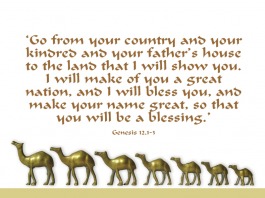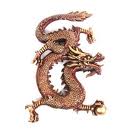Let's Take a Trip
Religion.
Randomness and God
In an effort to explain the somewhat unexplainable, people have turned to religion to provide a reason for mysterious happenings in our lives. In fact, a new paper written by psychologists at the University of Waterloo explains a study that tested people's connection between randomness in life and the belief in a supernatural world. This test shows how different people account for different occurrences in their lives. This fits exactly into one of our main lines of inquiry: do we control our own luck?
For more information on the study visit: http://scienceblogs.com/cortex/2010/03/magical_thinking.php
For more information on the study visit: http://scienceblogs.com/cortex/2010/03/magical_thinking.php
Judaism

In Judaism, a religion dating back many centuries, fortunate accidents have effected the development of a whole people. The religion was created when God spoke unto Abraham and promised him that he would be the father of a great people and his children would be as numerous as the stars in the sky. A common question is, why Abraham? There are limited details of Abraham in the bible, however, it is known that he was a shepherd living in the land of Haran. He was polytheistic, like most people of his time, and his father sold idols. To add to the difficulties of Abraham being the father of a great people, he and his wife, Sarah, were quite old and without any children. With an even greater misunderstanding of God’s actions we may ask again, why Abraham? This is a question that will forever remain unknown. Nevertheless, because God chose Abraham for whatever reason, the Jewish people were created and are still a prosperous group of people in our world today. http://www.4catholiceducators.com/graphics/Genesis12_1-3.jpg
Soul Mates
One of the most common occurrences people say is a direct result of fate is the idea of soul mates. In the interview below we asked Rabbi White his views on soul mates and Judaism. The chart from our survey on facebook then displays our participants' views. Although the three of us are not believers of soul mates, we were surprised to find that a majority of the people who took our survey were.
In class, we read the oldest book ever written, titled Gilgamesh, and engaged in much discussion about soul mates as part of our reaction to the story. Our out- of -school assignment was to write letters to another class member discussing the book furthur. Here is a sample of Brooke's exchange with Remy Haber. One of us is a staunch believer, and the other not quite sure as to their opinion on the matter. Interestingly enough though, our arguments are similar. The undecided writer states that "The idea of a soul mate is without a doubt desirable, and if true, comforting" and the strong believer states "There is something satisfying about the fact that there is someone out there who is truly "made" for you, "perfect" for you." Whether you believe it or not, its a nice idea, and it is certainly not concrete enough to ever know for sure whether soulmates exist. If they do, how many can one have? This is another unanswerable question, but one thing we could all agree is that every relationship has hardships, and there is no such as a perfect relationship.
Calvinism
Calvinism is a form a Christianity developed by Martin Luther. One of the main beliefs of Calvinism which separates it from other forms of Christianity is its support of the theory predestination. In predestination it is believed that certain people are given salvation from God while others continue on the road to hell. Those who received salvation are given the opportunity to then be justified for their sins. One who hears this may then question free will, which leads into the two types of predestination: univocal or equivocal. The univocal belief is that the Creator has a system of absolute freedom. However, equivocal reason states that the Creator has absolute control over human will. That being said, it does raise the question of what control, if any, we have over our life.
Culture.
Lucky Symbols

In many cultures around the world there are a variety of symbols that are believed to bring good fortune.
In China, one of the most highly valued symbols is a dragon. In fact, it is thought by the Chinese that they are descendants of dragons. In prehistoric times it was believed that dragons had the power to bless and influence people's lives. Eventually, when different tribes unified, the dragon became their national icon. Because of the high respect people had for this symbol, emperors compared themselves to dragons, making it a symbol of majesty. Today, the dragon is still regarded as a symbol representing a protector from evil spirits.
http://www.google.com/images?hl=en&source=imghp&q=chinese+gragon&gbv=2&aq=f&aqi=g-s1g-sx9&aql=&oq=&gs_rfai=
In China, one of the most highly valued symbols is a dragon. In fact, it is thought by the Chinese that they are descendants of dragons. In prehistoric times it was believed that dragons had the power to bless and influence people's lives. Eventually, when different tribes unified, the dragon became their national icon. Because of the high respect people had for this symbol, emperors compared themselves to dragons, making it a symbol of majesty. Today, the dragon is still regarded as a symbol representing a protector from evil spirits.
http://www.google.com/images?hl=en&source=imghp&q=chinese+gragon&gbv=2&aq=f&aqi=g-s1g-sx9&aql=&oq=&gs_rfai=
Ladybugs.

The ladybug is a universal symbol of good luck. Killing it is bad luck, while having one land on you is considered good. Many different interpretations of the luck it brings have been thought up, focusing on the spots on it's wings. If a ladybug lands on the hand of a recently married woman, the numbero f dots on its back are the number of children she will have. It can also indicate the number of happy months that await. Folklore also suggests that if you catch a ladybug in your home, the number of dots are the amount of dollars one will soon find.
http://bradleysanimalplace.files.wordpress.com/2008/02/istock_000001733943xsmall.jpg
http://bradleysanimalplace.files.wordpress.com/2008/02/istock_000001733943xsmall.jpg


